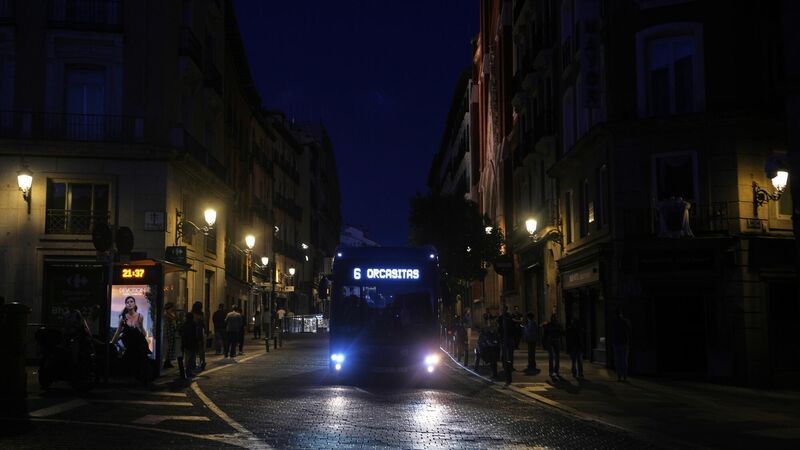Investment needed in under-pressure energy infrastructure to prevent blackouts

A bus drives in downtown Madrid during a major power outage on April 28; the Iberian blackout during the spring was a timely reminder of how much we rely on a solid energy system and the devastating effects when things can go wrong. File picture: Manu Fernandez/ AP
Trains grinding to a halt, retailers unable to handle card payments and businesses forced to shut down en masse — the Iberian blackout during the spring was a timely reminder of how much we rely on a solid energy system and the devastating effects when things can go wrong.
As experts continue to sift through the fallout of Europe’s most significant blackout in more than two decades, at home, Irish experts say it shows how important it is to invest in our under-pressure energy grid to make it more resilient and to ensure it can handle it if and when things go wrong.
CLIMATE & SUSTAINABILITY HUB













